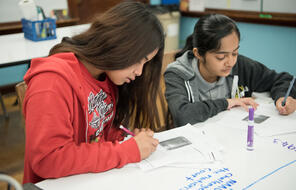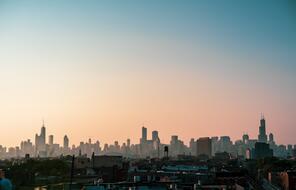Breadcrumb
A Jew is Not One Thing
At a Glance
Language
English — USSubject
- History
- Culture & Identity
A Jew is Not One Thing
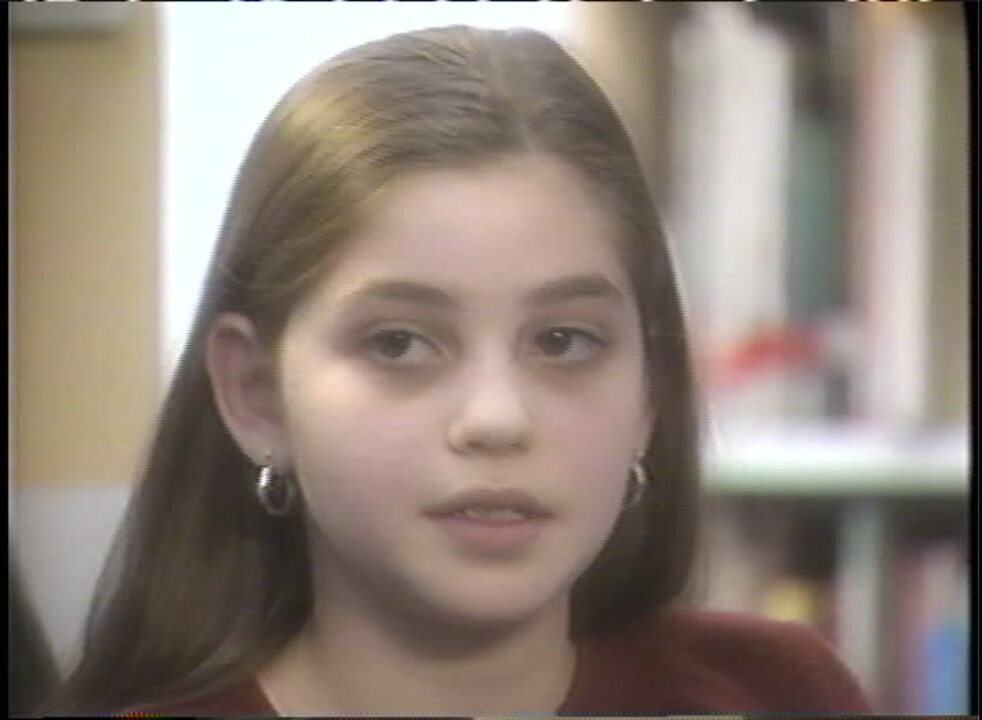
[MUSIC PLAYING]
There's a very beautiful midrash that I sometimes quote. It's the midrash about the B'nei Yisrael when they came to cross the Red Sea. And it is said that at the time of the crossing the Red Sea, each tribe went along his own path, and each tribe were separated by a wall of water.
And each tribe could see one another through those 12 walls of water. And there is nothing more beautiful for me to illustrate what Klal Yisrael is all about. It's only by respecting our specific identity that we will be able to reach unity.
[MUSIC PLAYING]
To be a Jew is not easy. It's not in vogue. It's much more fashionable to be a Buddhist. So you don't get too many votes for being Jewish.
And for many years, I tried very hard to run away from being Jewish. And I did. I went as far as I could. I went to New York and tried to assimilate and forget that I was Jewish and forget that I was from Israel and to forget Hebrew, and it didn't work.
I was born 1910, four years before the World War in a shtetl in Galicia. Pidvolochysk was the name. Our emperor was the emperor of Austria-Hungaria, Franz Joseph. But the Jews called him Ephraim Yossele, not Franz Joseph. Our kaiser, Ephraim Yossele.
He was regarded as a good kaiser. But when I was four years from this good kaiser, my father, he built for me, made for me a horse, a wooden horse. It is one of my first memories. I sat down on this horse and my father taught me a song.
[NON-ENGLISH SINGING]
Horse, horse, rise your legs and go to Jerusalem. I did not know Pidvolochysk and not Lemberg. I knew Jerusalem from the beginning.
One of my own very strong childhood memories harks back to early mornings, like 6 o'clock, 5 o'clock, when my father got up, and after his prayer, would start to work with silver and gold. He was a silversmith. And then, as he works, and as he hammers, he sings the Bible.
He sang the haftoros. Or he sang the Psalms of David. And he had no books. He was just working, but he was singing. The whole morning, he would do that.
When I was growing up, I don't think I planned on being a rabbi. I think I felt that I would be anything but a rabbi. And when I was at university, and I was living in a Jewish communal house and found myself leading services and teaching classes, I realized that the rabbinic role was something that suited me. It was something I like doing and something I like doing well. And just because it would give my parents nachas, that wasn't enough of a reason not to do it.
When I first came and I met American Jews who would have to pull down their kites that were flying kites in the park because the first star came out on Friday and that meant that it was the beginning of Shabbat and they were going to go to synagogue, I thought that they were frauds because I thought a Jew had to speak Yiddish, be an atheist, and be a socialist, and that was a true, authentic Jew.
The importance of being Jewish is knowing where you stand in the world and knowing what it means to be Jewish. And I really don't think that whether you're reform or orthodox or conservative, I think that that's just the details. I don't think that-- it's not as important as knowing the laws and studying the Torah.
Every writer, in a way, is a Jew, even if he's a Chinese, or Japanese, or Indian. There is something so Jewish in the belief that the world is something that you have to decode, to decipher to understand it, and there, to create your system of rules and regulations in order to survive in that. There is something very Jewish in rewriting the memory, the past and give it new significance.
[MUSIC PLAYING]
Maybe there is really a covenant. I mean, in my rational mind, I cannot accept it. But in my right brain, and in rational mind, it makes a lot of sense. In my left brain, it doesn't make sense at all. My left brain wants to defy totally.
In the famous prayer of the Amidah, we say, "our God and God our ancestors." It doesn't talk about, necessarily, we pray for what will be the future commitment, but there are no guarantees that the covenant is going to continue in future generations. That is something that every generation takes on itself, to renew the covenant between God and the Jewish people, or between the Jewish people and the Jewish tradition, however you want to define it.
There is a covenant between us and the divine supreme power. And I think we may not reflect upon our daily consciousness of this, but it is in our subconscious existence. And it continues to be very important.
We're told in the story of creation that God separated the waters above from the waters below, and then it's all confounded because people did evil things. So they broke the rules, he broke the rules. So it's a mess.
After the flood, there's a covenant. And that's the first time that the word covenant appears in the Bible. It doesn't appear before. And the covenant means that God separates the waters again, and then the sign of the covenant, of course, is the rainbow. And it's going to be there permanently.
In other words, there'll be some predictable elements in life, and human beings will be able to plan their lives a little bit. There will be some order in the madness. Those poor earthlings will not be smashed completely. They will have some autonomy. Everything that follows is based on that, on the idea that you know that you are in the palm of a God that can smash you any time.
Sometimes, he does. Holocaust. But that you enjoy some autonomy in that this is what you work with. You're never secure about it.
This is what you do. This is what you live with. And it's a lot, when you think of it. It's a lot. It's not a little. It's a lot.
[MUSIC PLAYING]
If it wasn't for God and how he rescued us from Egypt, then we wouldn't be alive today. There would be no Jews. And so we have to keep that in mind every single day when we pray that God took us out of Egypt, and if God didn't do that, we wouldn't be here.
Everything started here in Rome when Jerusalem was destroyed. When Jerusalem was destroyed by Titus, we were brought here in Rome as slaves. And as unbelievable as it is, we have crossed 2,000 years of history, and we are still here, alive, in the heart of Adam, in the heart of Christianity.
This empire which has tried to assimilate us, to seduce us, to destroy us, we have lived here and we have survived. We are incredible animals who can adapt themself to any situation. A Jew is not one thing.
That's why we are 12 tribes. And that's why we were spread among the nation. We are not only the memory about ourself, but we are the memory of the nations.
We fled Italy during fascism to escape persecutions. My father took us to safety in America, where we-- after the fascists enforced the racial laws. And we were able to study, to work. And it was an extremely important experience for us, the 4,000 Italian Jews who found refuge in America.
And what happened at the end of the war, of course, the birth of the state of Israel was an exciting-- it was an exciting, unique experience for all of us. It gave us a sense of security. But on the other hand, when I had dreams at night in America, and I had nostalgic dreams, I dreamt of a the smell of the sea in some little harbor of Italy. I even dreamed of Baroque churches. Because in my subconscious, the place where I came from was Italy.
We Jewish people, for more than 2.000 years, we live in an exile. We didn't have all those concrete elements of sovereignty. We didn't have a flag, not a land, concrete, physical land of our own. We didn't have army to protect ourselves. We didn't have this notion of self-confidence.
And I think we created for ourselves a kind of a variable environment to compensate ourselves for that. So we had the language, the words as our place, as our concrete place.
[SPEAKING FRENCH]
The traditional notion is Palestine, Israel's home. Any place else is exile, galuth. You're not a full Jew till you go back there. You're never going to be at home anywhere else.
And I mean, I believe in sort of real kind of concrete things. I don't feel in Israel anymore at home. I mean, maybe I should. Maybe history tells me that I should, but I don't think I feel any more at home there than I do anywhere. And I don't know that the people that live there are more Jews, more Jewish or more whatever than I am here. I just don't believe that as a reality.
When Agnon got the Nobel Prize, it was asked in Stockholm, from where you come, Mr. Agnon? And he answered, in his way, he spoke slowly, slowly, I am from Jerusalem, but because Titus destroyed the temple, I was born in Poland.
[MUSIC PLAYING]
Israel was an imaginary place, an abstract place, a place-- a focus for longings, to aspire to. It was the place where when you wanted to elate yourself on Shabbat, on holidays, you were talking about Israel, about Zion, about Jerusalem. And I must tell you, it has also some destructive aspects, because it turned to be an abstract place. And we see until today how few people, Jewish people, are coming to Israel.
Because you can have your Jerusalem in your heart. You don't have to come here to this troubled city and to this miserable country with all the troubles and all the tensions and conflicts. You can be a very good Zionist, people might think, in Brooklyn or wherever, in London or in France.
And well, I don't belong to that. I think I want to live in my story. Nations and peoples are created by symbols and by common stories and common memories. But in front of the complexity of the modern world, in front of the challenges of modernity, of the threats of assimilating in other cultures and other society, symbols are not enough. You need something much more concrete and much more rewarding.
And life here is very rewarding, I think. It's very difficult to live here. And you came here to interview me, and I'm in the middle of a reserve service. I have to give-- each year, I have to give 44 days in Miluim, and I served four years in the army. And once I calculated, it's eight years that I'll have to give to the army, to the extreme arbitrariness.
I will not write, let's say, two or three novels because of these eight years. But yet, I don't want to live in another place. I don't want my children to live in another place. I think that in our modern and very shaky world, for a Jew to live here in the place where every stone is so significant, where he is taking part in building a society, which was such a dream 50 years ago only, it is such a rare privilege. I wouldn't miss it for the world. And I mean for the world.
Israel is a home in a different sense. It's nothing that I can pinpoint logically. It's not logical. Because my mind did not want to come here and could not find any good reason to come here, but my heart did.
And I was pulled. I was pulled like a magnet by the light here, by the energy, by the physicality of this place. There's a certain power here. There's a certain magnetism. There's a certain light.
And in that sense, I feel very much at home here. I feel safe. I feel like-- I feel like I'm in a womb, that I have come home. It's not a home one would usually think about with four walls and parents, but it's, if you will, a spiritual home.
Many of the leaders, the Zionist leaders, I don't think understood Judaism very well. And I don't think they understood the Jews of Yemen. Therefore, one of the great tragedies in Israel, in fact, was the exposure of very significant Jewish communities to what was believed to be superior culture, a Western culture, and therefore, taking this community, and particularly, the children and the young people and impressing upon them that modern social and scientific ideas were more meaningful than the knowledge of their tradition and their culture.
Growing up in Israel, I was considered an Oriental, [HEBREW] which was not in vogue either. In fact, everybody hated [HEBREW] because they looked strange. They had different customs. They were considered primitive, backwards. It was not an Ashkenazi culture, which was in the ascendance in Israel at the time. And I had all the complexes you can possibly imagine.
[SPEAKING FRENCH]
I reject any conception, any view of the diaspora as being a place where some Israelis in exile or where some temporary exile live who are bound and for-- who are bound to go back sooner or later to Israel. I believe that the diaspora is there to stay. And it should be. It's good for the Jews to have a diaspora. Because, look, if we survived along the centuries, it's not despite the diaspora, but because of the dispersion of the Jews.
[MUSIC PLAYING]
Because if we didn't have the commandment or the laws, then everything would be hectic. Like, everyone would be killing everyone or hurting everyone, not listening to each other, doing what they wanted, not having any progress in anything.
The central building block for the Jew is the Jewish family. With the destruction of the temple, there is a striking statement in the tradition that says, when the temple was destroyed and we were not able to offer up sacrifices on the altar, the temple's altar is replaced by the family dining table, and that we can't offer up holiday sacrifices. Instead, you have family meals around every holiday, and that the meal around each holiday replaces the temple.
It's a striking sentiment. This wonderful thing that we remember, the temple, is replaced by the family. The sacred altar is replaced by the simple table that we share our holiday meals and our daily meals around. And that really has infused Jewish life throughout the diaspora.
I see feminist seders, I see lesbian seders that I've attended. They're nothing like anything I came from. They don't use Yiddish. They don't use-- they don't use traditional texts. They don't use Yiddish texts.
I mean, I have endless feminist Haggadahs that have all kinds of texts from women, and biblical, and historical, and mythical, contemporary events. They're very, very different. And they feel to me-- sometimes, they feel-- there's a part of them that feels alien, but there's a part of them that feels very comfortable and familiar to me. I'm not someone who belongs only to one community, which I think is also different.
I think that the entire Talmudic tradition is basically that. It's a kind of poetry which is done based on poetry which is already there, and the source is God. And you do it with laws.
It's very strange, I guess, for a lot of people to think of laws as poetry, but it is. It's the song of your life. It's not a song that you sing with music, but it's a different kind of music.
This is what has been done for a lot of generations, and it's become customs that Jewish people have followed these laws, some more than others. But I think they're still very special and I don't want to break that chain.
[MUSIC PLAYING]
I think modern people will not be able to submit themselves to an authoritarian way of life that dictates everything that they do. And yet, Jews are constantly in a search for community. And I think this is the essence of the modern Jewish spiritual path, me, as an individual, reaching out to a community and living in that tension.
I always think of the two most common names for God that we have, Adonai and Elohim. Adonai is in the singular, my Lord. Elohim was in the pleural, our God. And it's not by accident that those two phrases always come together in blessings and in the prayer, the Shema. It's always Adonai and Elohim.
Judaism is not a single solitary path, and it is not a totally communal path. It's a community made up of individuals. It's individuals in search of a community. There is always the idea of the minyan, of nine Jews who are looking for the tenth, of one Jew who's looking for the other nine.
Judaism is very-- in fact, has proven to be very pliant and changeable. And it's not static. I think people don't realize that Hasidim weren't around 400 years ago, as early as 400 or 300 years ago. People don't realize it.
They think that's it. This is the truth. This is orthodoxy. This is the traditional Jew and it's been here forever. It's not true. And they don't even realize the Hasidim were excommunicated when they first arrived on the scene.
So I think that that kind of flexibility is the kind that we have to keep in mind. And the fact is, that just like has Hasidism became something totally new that had not existed before, I suspect in 100 years, there will be forms of Judaism that we do not recognize right now or even see and it'll be very changed. It'll have a common thread of historical connections. It will undoubtedly have biblical resonances. But it will not be anything that we see right now. And I think we have to be open to that.
I remember-- it's an anecdote-- when my elder son was born, and I, after a very exhausting day in the hospital, I went back. I drove back from [INAUDIBLE] from Mount [INAUDIBLE] to Mount Scopus back to my home in Talpiot. And then, after a curve in the road, suddenly, I saw Jerusalem, all the beauty of Jerusalem by night with all the lights and the special atmosphere above Jerusalem.
And I stopped the car by the road and I waited, and I told myself, listen, now, don't be a schmuck. It's been a good day. You have a son, a wonderful son. And your wife is OK. She's healthy and it's good. Say thank you, God.
And I just couldn't say it. I feel that if I thank him in that moment, it really means that I, deep in my heart, I do believe that there is such a power, such an entity. And I didn't. And I'm asking myself, what is the part of having God or not having God in my Jewishness?
And nevertheless, I think I'm very much a Jew without any God in my life. There are many ways and streets in Judaism, and one of them is my way, and it has no God sign on it. But yet, it is Jewish.
You should pass down the stories so our great-grand-- our great-great-grandchildren would know about what happened 2,000 years ago. What use would it be to be a Jew if you don't even know what happened back then? What use is it?
[MUSIC PLAYING]
A Jew is Not One Thing
You might also be interested in…
Our Names and Our Place in the World
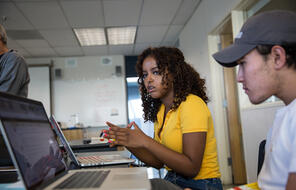
Making Meaning of Community

Emoji Emotions
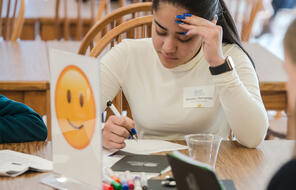
Picture This

Notable Quotable
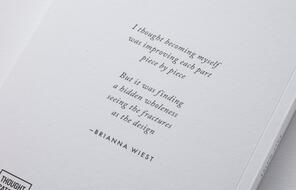
Rose, Thorn, Bud

Fist to Five
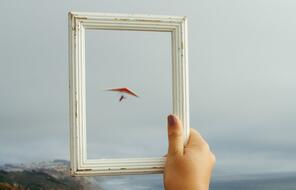
First Chapter Fridays
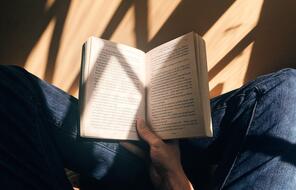
Maintain and Modify

Compass Points
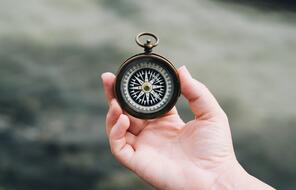
Mood Meter
